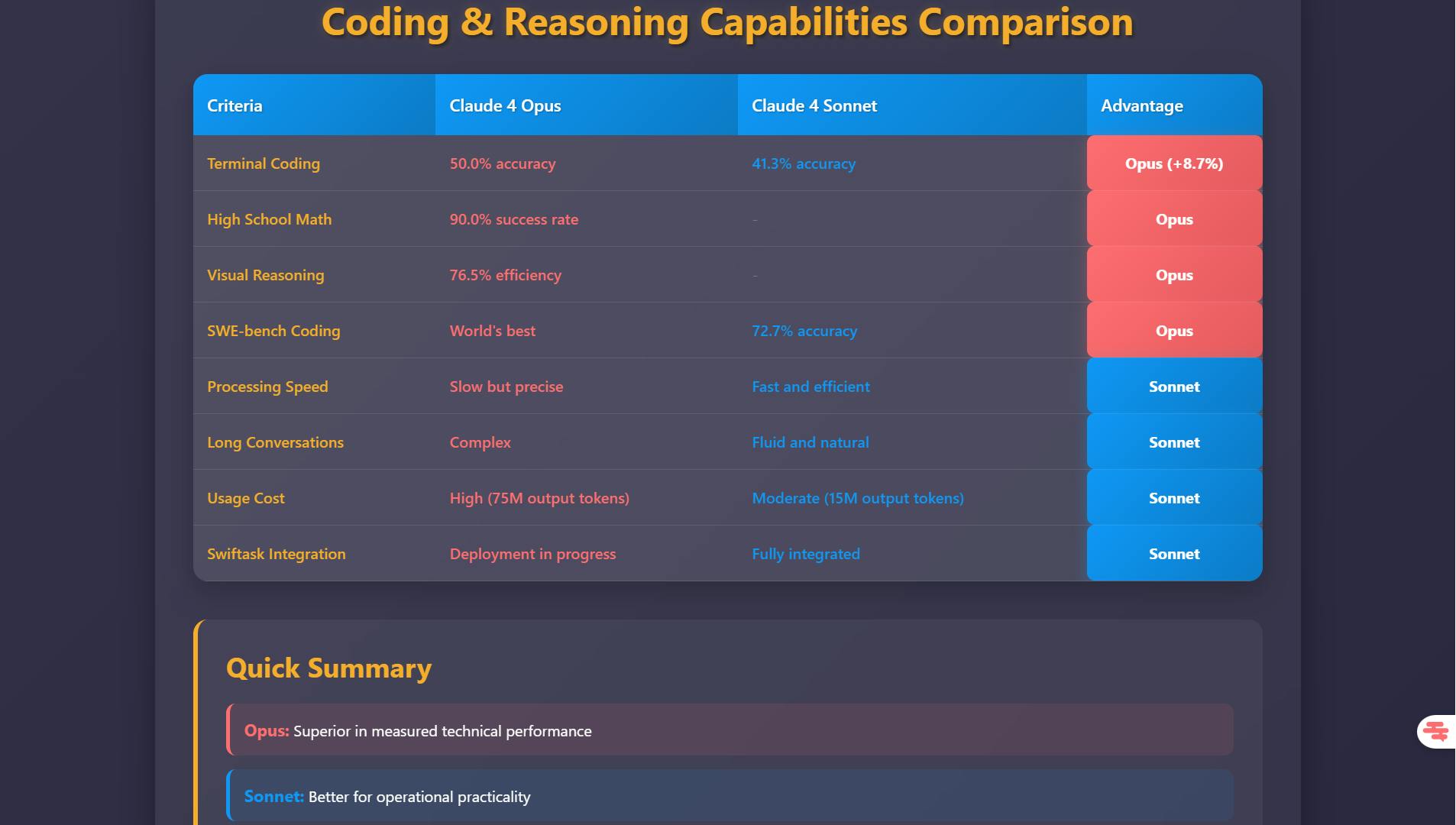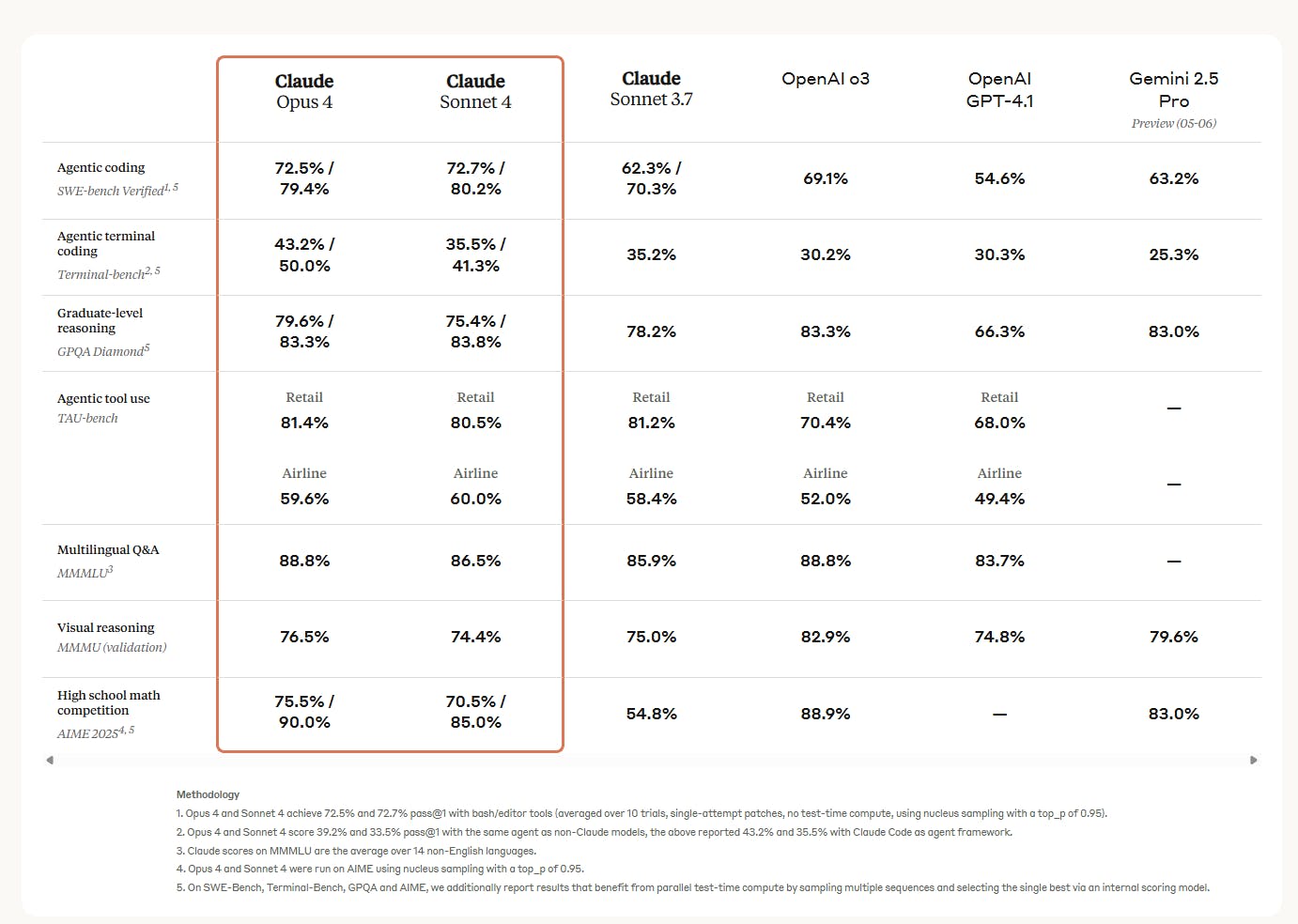Table of contents :
Claude 4 Opus: What's the Difference with Claude 4 Sonnet?
Ready to transform your business with AI?
Discover how AI can transform your business and improve your productivity.
This confusion costs time and money in choosing the optimal model. Discover the essential differences between these two Anthropic models to make an informed choice that will transform your productivity.
Key Differences Between Claude 4 Opus and Claude 4 Sonnet
What is the main performance difference?
Claude 4 Opus positions itself as Anthropic's most powerful model, specialized in complex tasks requiring deep reasoning. It particularly excels in multi-step problems and sophisticated analyses.
Claude 4 Sonnet, on the other hand, is a hybrid AI model optimized for high-throughput applications. It prioritizes efficiency and execution speed, making it ideal for fluid conversational interactions and high-volume content generation.

Price Gap and Quality-Cost Ratio
Pricing directly reflects each model's capabilities. Claude 4 Sonnet offers more accessible pricing with 3 million input tokens and 15 million output tokens. Claude 4 Opus, with its 15 million input tokens and 75 million output tokens, justifies its higher cost through exceptional performance.
Technical Performance Measurements of Both Models
What are Claude 4 Opus benchmarks?
Claude 4 Opus establishes new standards in several critical domains. Its sustained performance on long tasks particularly distinguishes it for intelligent agents and advanced research. The model maintains its accuracy even during extended processing, an essential characteristic for professional applications.
Test Results for Claude 4 Sonnet
Claude 4 Sonnet achieves 72.7% accuracy on SWE-bench, demonstrating solid advanced coding capabilities. While less performant than Opus, it offers an excellent mix between performance and efficiency. Its throughput-optimized architecture allows it to rapidly process large data volumes.

Source : Anthropic
Comparative Analysis of Obtained Scores
Cross-analysis reveals that Claude 4 Opus systematically outperforms Sonnet in complex tasks, while Sonnet excels in applications requiring speed and conversational fluidity. This complementarity naturally guides toward distinct use cases.
Optimal Use Cases for Each Model
When to Choose Claude 4 Opus for Your Projects?
Opt for Claude 4 Opus when your projects require in-depth analysis and complex decisions. It's perfectly suited for intelligent agents, scientific research, advanced automation, and sophisticated coding tasks. Its ability to handle long-term problems makes it the ideal ally for expert developers.
Ideal Situations for Claude 4 Sonnet
Claude 4 Sonnet excels in long content generation, conversational chatbots, customer support tools, and automated summaries. Its natural fluidity and contextual understanding make it the optimal choice for user interactions and large-scale content production.
Swiftask already offers Claude 4 Sonnet on its platform, allowing users to create personalized AI agents with this powerful model. Capabilities include image generation, long-term memory, web search with Perplexity, advanced reasoning, content generation, and visual analysis.
Selection Criteria According to Your Needs
First evaluate the complexity of your tasks. For precise analyses and advanced development, prioritize Opus. For fluid interactions and content production, Sonnet naturally imposes itself.
Pricing and Accessibility of Claude 4 Models
What is the Real Cost of Using Opus?
Claude 4 Opus represents a significant investment, justified by its exceptional capabilities. Its higher cost translates into increased productivity for complex tasks, reducing development time and improving result quality.
Claude 4 Sonnet Pricing Structure
Claude 4 Sonnet's competitive pricing makes it accessible for intensive use. Its excellent quality-price ratio perfectly suits businesses seeking to democratize AI in their daily processes.
Return on Investment Calculation
Measure ROI by comparing time saved and quality obtained. Opus generates substantial savings on complex projects, while Sonnet optimizes costs for high-volume applications.
Recommendations for Making the Right Choice
How to Evaluate Your Specific Needs?
Precisely analyze your priority use cases. List critical tasks, evaluate their complexity, and estimate processing volumes. This methodical approach guides toward the optimal model.
Testing and Implementation Strategy
Start by testing both models on representative samples. Swiftask facilitates this approach by offering Claude 4 Sonnet directly accessible, allowing creation of AI agents with advanced capabilities in image generation, web search, and visual analysis.
Future Evolution of Both Models
Anthropic continues improving its models. Claude 4 Opus will evolve toward even more sophistication, while Sonnet will gain efficiency. Anticipate these evolutions in your adoption strategy to maximize your long-term investment.
Looking for a simple solution? Test Claude 4 Sonnet on Swiftask today to discover its capabilities in creating personalized AI agents!
author
OSNI

Published
June 24, 2025
Ready to transform your business with AI?
Discover how AI can transform your business and improve your productivity.